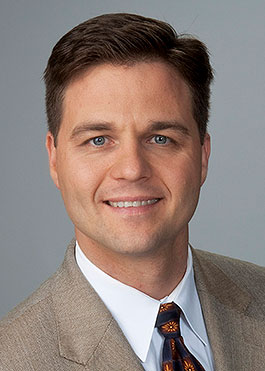
Cancer screening is very important. Multiple different cancers have standards of care. For instance, lung cancer with CT scans, breast cancer with mammography, colorectal cancer with colonoscopy and prostate cancer with PSA screening — these all improve overall survival from cancer. Meaning, patients who undergo screening are more likely to be cured if found at an early stage rather than later.
Here are guidelines for some cancer screenings.
Colorectal cancer screening
In recent years, colorectal cancer has been diagnosed in younger and younger patients. As a result, the recommended age for screening has been lowered to age 45. There are numerous options to screen for colorectal cancer; however, a colonoscopy continues to be the most effective screening method for detection and removal of pre-cancerous colon polyps.
Excluding skin cancers, colorectal cancer is the third most common cancer diagnosed in both men and women in the U.S.; nearly 150,000 cases are diagnosed annually. About 20%-30% of people will have colon polyps that can become cancerous if not detected and removed. Patients who detect colorectal cancer through screening have the best cure rates. You should talk with your doctor about screening earlier if you are at high risk for colorectal cancer.
Lung cancer screening
Cigarette smoking is the most well-established risk factor for the development of lung cancer. We know that patients who are either former or current smokers, or who have smoked at least a half pack to a pack per day for about 20 years are at risk for lung cancer.
Fortunately, the risk of lung cancer decreases as soon as you quit smoking. Current and former smokers may benefit from a low radiation dose CT scan to assess for any suspicious areas in the chest. In general, lung cancer screenings are to begin around the age of 50 for smokers.
Breast cancer screening
Breast cancer is the most common cancer diagnosed in women — 1 in 8 women will develop breast cancer in her lifetime.
Breast cancer screenings should begin at about the age of 40 and are typically performed with a mammogram to detect abnormal spots in the breasts. Depending on your personal risk factors, you also may benefit from additional breast cancer screening, including but not limited to MRI.
Prostate cancer screening
Prostate cancer is an incredibly common cancer. About 1 in 8 men (300,000) will be diagnosed with prostate cancer over his lifetime. About 35,000 men will die from the disease each year.
The good news is that this disease is a curable cancer with an early diagnosis. Beginning at age 45, an annual blood test screening by either a primary care physician or a urologist is recommended. High-risk patients who have had more than two family members diagnosed with prostate cancer should be screened at age 40 or younger.
Screening is very important because we know from several large clinical trials that it does improve survival by finding disease early. Catching prostate cancer through screening can decrease the possibility of death from prostate cancer significantly.
Cervical cancer screening
All women should begin cervical cancer screenings at the age of 21. Screening requires a pelvic exam, during which the doctor tests the cervix for abnormal cells and the human papillomavirus (HPV). Pap and HPV testing can prevent cervical cancer and find it early. If you are age 30 or older, talk with your provider about your personal risk and what testing options are right for you.
Skin cancer screening
Each year, about 100,000 cases of melanoma are diagnosed in the U.S. and about 8,000 people die from the cancer. Melanoma can be cured commonly with appropriate surgery. Finding melanoma early dramatically increases the chance of a cure.
It is important that any abnormal mole or spot on the skin, especially anything that itches, bleeds or changes color or size, or is irregularly shaped — these are all markers of a skin lesion that should be checked out by a health care provider.
Talk to your health care provider about what screenings are right for you.
Find the right provider for you.

